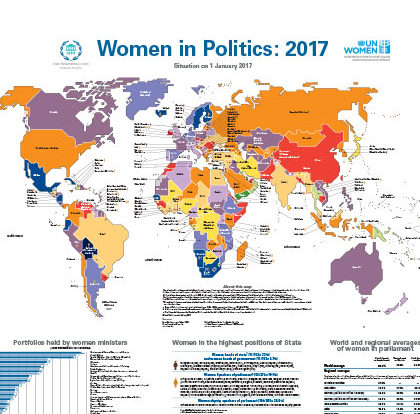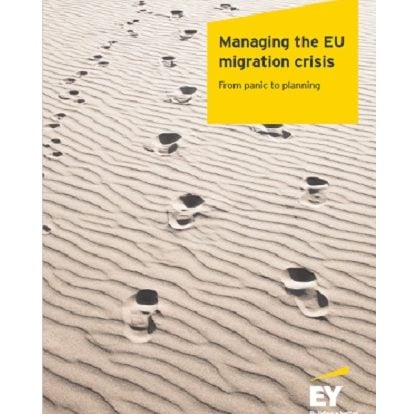Progress on female ministers has stalled, says UN

There has been little progress in increasing the number of women in the upper echelons of governments in recent years, according to data released by the Inter-Parliamentary Union (IPU) and UN Women.
The Women in Politics 2017 Map, released during the UN’s annual Commission on the Status of Women (CSW61) in New York, showed that the number of countries with a female head of state or government dropped from 19 in 2015 to 17 in 2017. At just over 18 per cent, the number of women ministers globally has also stagnated since 2015, rising by just two to 732.
UN Women executive director Phumzile Mlambo-Ngcuka said that specific measures were needed to ensure female representation. If progress continued at this “excruciatingly slow” rate it would take 50 years to reach gender parity, she said, adding: “This is a warning signal; we have to do something about this.”
Ms Mlambo-Ngcuka told journalists that political parties were male-dominated and that “men tend to choose those who are made in their own image”, with some women entering politics experiencing violence and bullying.
She called for legislation, political support and cooperation between parliaments, government and civil society to increase the proportion of women in politics. “The overall stagnation and specific reversals are warning bells of erosion of equality that we must heed and act on rapidly,” she said.
Bulgaria, France, Nicaragua, Sweden and Canada were said to have shown strong political commitment to increasing the number of women in politics. As a result, these countries fared best in terms of gender equality in government, with more than 50% of women taking up ministerial positions. Azerbaijan, Hungary, Pakistan, Saudi Arabia and Belize were among the 13 countries with no women at all in ministerial positions.
According to the research, there was a significant drop in the number of women ministers in Finland and Cabo Verde, which in 2015 had ranked first and second. Finland declined from 62.5% in 2015 to 38.5% in 2017 and Cabo Verde from 52.9% to 25%.
The map highlights the issue of women being allocated so-called “soft” portfolios when they do reach government. However, at 8.7%, the number of women heading the environment/ energy brief had overtaken those in charge of family/ disability for the second time since 2005. There had also been a 10 point increase to 30% in the proportion of female environment ministers since 2015.
Women’s representation in parliament was also found to be stagnating, with the number of female MPs increasing from 22.6% in 2015 to 23.3 per cent in 2017. The proportion of women among parliamentary ‘speakers’ – who chair parliamentary discussions – stands at 19.1%.
IPU secretary general Martin Chungong said: “These developments show that progress in gender equality remains slow in all structures of power and types of decision making.
“Power is still firmly in men’s hands, and although we have witnessed some positive trends… much remains to be done if women are to play on a level field with men. Equal representation in positions of power is a fundamental precondition for truly effective and accountable democracy.”
For up to date government news and international best practice follow us on Twitter @globegov
See also:
Electing women can boost gender equality in both appointments and policies, research finds
Governments doing too little on gender diversity, report finds
OECD chief of staff calls for bold policies on gender equality





















